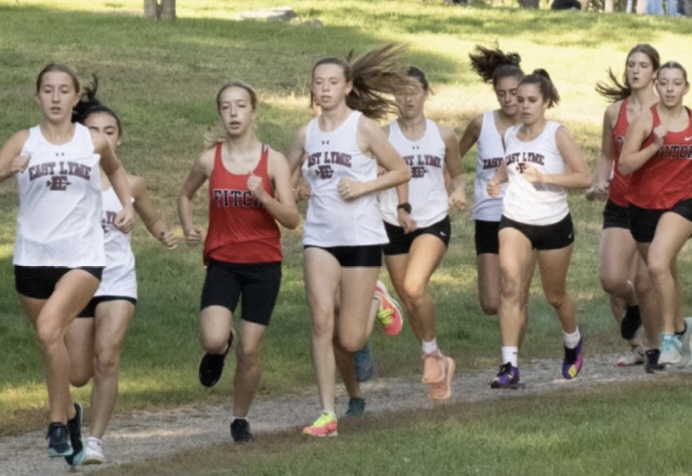Iron Deficiency Causes Poor Performance in Athletes
Many ELHS runners struggle with ferritin loss and end up taking iron pills and supplements.
Iron deficiencies are one of the leading causes of poor performance in runners (Runners Connect). Even if it’s unheard of to you, iron deficiency can be an issue among all athletes.
More athletes than you think experience iron deficiency as the result of over exercising and high-endurance training. Iron loss happens through ferritin, which is a blood protein that is a store for iron.
Iron deficiency can be an issue for all athletes, but it is most common in athletes with high endurance training and long distance exercise such as cross country running, soccer, and rowing.
Boys’ track and field Coach Steve Hargis was previously a rowing coach at the Coast Guard Academy and has seen this issue before.
“We did have an iron deficiency issue in the boats I was coaching… It’s real. I’ve seen people suffer through workouts who wouldn’t usually suffer through workouts,” Mr. Hargis said.
Senior and long distance track runner Kayleigh Jensen has been experiencing iron deficiency issues since sophomore year.
“All of a sudden, races got really hard and I started hitting the wall early on. My times started to go up and I had fatigue during races… I also noticed that I would get lightheaded and dizzy while sitting in class at school and I had
shortness of breath even from walking up the stairs,” Jensen said.
Once she noticed that it was becoming a real issue, Jensen got her blood tested at Quest Diagnostics. Sure enough, then results came as expected and Jensen had very low iron levels. She purchased iron gummies, then pills, and
eventually switched to liquid iron- which can all be purchased over-the- counter.
Thankfully, iron deficiency as an athlete can be easily prevented.
“The best way to keep your iron levels up is to eat foods that are rich in iron such as red meats,” Board certified pediatrician Dr. Kathryn Cambi said.
If you are a vegetarian or vegan, she recommends taking iron supplements as a replacement for eating protein-rich meat or else you will be at greater risk for iron deficiency. Iron deficiency can also happen more easily if a woman has heavy bleeding from her period or if an athlete is frequently running on harder surfaces such as pavement.
For those who are iron deficient, you can talk to your doctor about what method is right for you.
“If you get on the right dose, take iron correctly, and eat a protein-
rich diet, you will see change within a month with no long-term consequences,” Dr. Cambi said.
For athletes, it’s recommended that you get tested regularly (at least once a year) by getting blood drawn, even if you haven’t noticed symptoms. The symptoms of iron deficiency can include fatigue, nausea, extreme shortness of breath, weakness, and lightheadedness.
Even if you haven’t noticed any symptoms, problems in the future can be prevented by getting tested regularly.
Your donation will support the student journalists of East Lyme High School. Your contribution will allow us to purchase equipment and cover our annual website hosting costs.

Hello everyone! As an Editor-in-Chief this 2024-2025 school year, I plan to bring fun and impactful pieces to the Saga, provide readers with unique and...


